Copper Pali
₹350.00
Description
- Pali is used as a vital part of the poojas. There is a conception of Charanamrita rituals.
- These containers are placed before the gods or the goddesses just before all the other rituals for the poojas begin to take place.
- They are gifts to the deity and that is why Panchpatra and Pali are hugely important for the successful Poojas.
- They are regarded as holy things and everyone is not allowed to touch these items except for the Purahit or the worshiper himself.
- Actually the word Charanamrita means the holy nectar and there are lots of folk tales related to this item.
- After the pooja is completed, Charnamrit is given to the people as gifts from gods and goddesses.
- The devotees drink it.
Specifications
- Material – Copper
- Pack of – 1
- Weight – 40 g
Categories: Pooja Ingrediants, Pooja Vessels
Related products
Cooper Plain Kalash
₹650.00
Description
- The Kalash symbolically represents creation. The vacant pot, symbolizes earth, and the water filled symbolizes the primordial water from which life began on earth.
- It is filled with water (preferably the water of holy Ganga, any sacred river or clean, running water).
- Its top open end holds betel or mango leaves and a red-yellow sanctified thread (kalawa or mauli) is tied around its neck.
- This kalash is placed on the pujavedi (worship dais or table) near the idols or pictures of the deity. It is placed facing the North, in the center.
- This positioning signifies balance; balance that one needs to achieve success in every walk of life.
- Often it is topped by a coconut or a deepak and kept on the sacred Vedic swastika symbol or a Vedic swastika is drawn on it by using wet vermillion, sandal-wood powder and turmeric.
Specifications
- Material: Copper
- Pack of - 1
- Size - (Top W x H): 8.5 x 9 cm
- Weight - 118 g
Copper Panchapatra
₹210.00
Description
- copper panchpatra is an integral part of poojas where in the holy charan amrit is placed before the pooja and then distributed upon the Pooja's completion.
- The Charanamrit literally means Amrit (Holy Nectar) from the Charan (Feet of the Lord) of the worshipped deity and is partaken as a sacred offering or a holy gift after the completion of the pooja.
- In many Hindu homes the cooked food is first offered to the Lord each day and is then consumed by everyone else.
- The offered food is mixed with the rest of the food and then served as prasad.
Specifications
- Material - Copper
- Pack of - 1
- Size - (W x H) 7 x 6 cm
- Weight - 33 g
- Capacity - 100 ml
Black sesame (Kala Teel)
₹175.00 – ₹340.00
Description
- It is also known as Kura Goma. These seeds are used for purifying the body.
- Water boiled with these seeds makes body pure.
- Black til is mixed in either milk/ water and then offered to Lord Shiva in the form of Abhishek.
- It is equivalent to doing abhishek with 'punchamrat' (a combination of 5 things).
- This seed is very dear to the Pitars (deceased ancestors).
- Black sesame or kaala teel is part of hawan samagri, mix up in hawan samagri as homam dravya , exotice herbs.
- In shani, hanuman, shiva pooja and hawns major samagri used is black teel. on the day of saturday and tuesday with chameli oil black teel is offers to lord hanumanji, too remove saturn effect.
Quantity
- 250, 500 gms
Navadhanya
₹35.00
Description
- Navadhanya signifies the nine grains (where ‘Nava’ means nine and ‘Dhanya’ means grains) that are an important part of an Indian’s staple food.
- They are offered to the Navgrahas (9 planets). They are also part of other Hindu pooja and rituals. The Navadanya includes Bengal Gram, Wheat, Horse Gram, Green Gram, Rice, White beans, Black Seasame seeds, Chic Peas, Black Gram.
- Usage of Navadhanya as a Hindu pooja item is a ritual followed during specific occasions such as the Grahapravesam or house warming ceremony and also during the Navaratri festival.
Uses of Navadhanya for Grahapravesam
- The Grahapravesam or house warming ceremony is a ritual performed before someone starts living in a new house.
- Sometimes, a Grahapravesam may also be performed if the house or a portion of the house has been rebuilt, or if someone is coming back to live in the house after being away in a different place for a long number of years.
- The objective of performing this ritual is to invoke the blessing of the gods to grant happiness, peace, prosperity and longevity to the people who are going to live in the house.
- During this ritual, the Navadhanya is one of the essential Hindu pooja items. These nine grains are placed in a pot filled with water along with a one rupee coin and a coconut is then placed on top of the pot. The priest then performs the pooja ritual after which this pot is taken inside the house and placed near the homam fire.
Use of Navadhanya during Navarathri festival
- Navadhanya is also an important part of the Navarathri festival which is celebrated for nine continuous days in worship of the Hindu goddesses.
- “Kolu” is a significant aspect of this festival where different idols are arranged such that they signify different stories from the various epics in the Hindu religion. Pooja will be performed for the idols placed in the Kolu every evening and neighbors will be invited to visit the Kolu and sign hymns in praise of the gods.
- Each evening one of the Navadhanya will be cooked and offered to the deity and visitors in the form of “Sundal”.
- The Kolu custom and evening pooja is incomplete without a sundal made from one of the Navadhanyas.
- Apart from the spiritual or religious beliefs of well being when using a Navadhanya, intake of these grains has excellent health benefits.
Quantity
- 125 gms
Clove, Cardamom, Betelnut
₹95.00 – ₹210.00
Description
- Pack of cloves (long), cardamom (elaichi) and betelnut (supari) for use in daily pooja and rituals.
Used
- Clove in pooja rituals for fulfillments of desires and success in work (karya siddhi).
- Cardamom has a special aroma, which is pleasant and is used to attract and invoke deity energies.
- The betel nut is an integral part of the daily or ritualistic Pooja.
- It is also popularly used in the age old- custom of Indian eating.
- The supari is symbolic of the nut of the ego that must be offered on the altar of God.
- It represents the hard, coarse qualities that must be surrendered to God, leaving only the soft, pure qualities.
Quantity
- Clove, Cardamom, Betelnut - set of 5 , or 11 each
Kala Urad / Black gram
₹55.00
Brass Panchaarti (Small)
₹660.00
Description
- The importance of lighting a diya during worship can be traced back to Vedas.
- Light symbolizes knowledge and darkness, ignorance.
- The Lord is the “Knowledge Principle” (chaitanya) who is the source, the enlivener and the illuminator of all knowledge.
- Hence light is worshipped as the Lord Himself. Knowledge removes ignorance just as light removes darkness.
- Also knowledge is a lasting inner wealth by which all outer achievements can be accomplished.
- Hence we light the lamp to bow down to knowledge as the greatest of all forms of wealth.
- We therefore keep a lamp lit during all auspicious occasions as a witness to our thoughts and actions.
Specifications
- Material – Brass
- Pack of – 1
- Weight – 245 g
Havan Samagri
₹140.00
Description
- The Havan Samagri is a sacred offering in the yagna and each item of the samagri is significant.
- The havan samagri is offered in the fire during yagnas and homas, after completion of every mantra chant.
- Havan Samagri (a mixture of various dried herbal , roots and leaves) is offered in the ablazed fire which disseminates in micro form, in the air, to purify the environment besides activating the air as disinfectant germicidal agent.
- It is anti-bacterial and is made from high grade raw materials. It is 100% natural Havan Samagri.
Contents
- Made from ayurvedic havan exotic herbs, Black til, Jo, 32 types of dhoop, Bhimseni kapoor, rose petals, sandalwood powder, lobaan, ghee, chandan
Quantity
- 100 gms


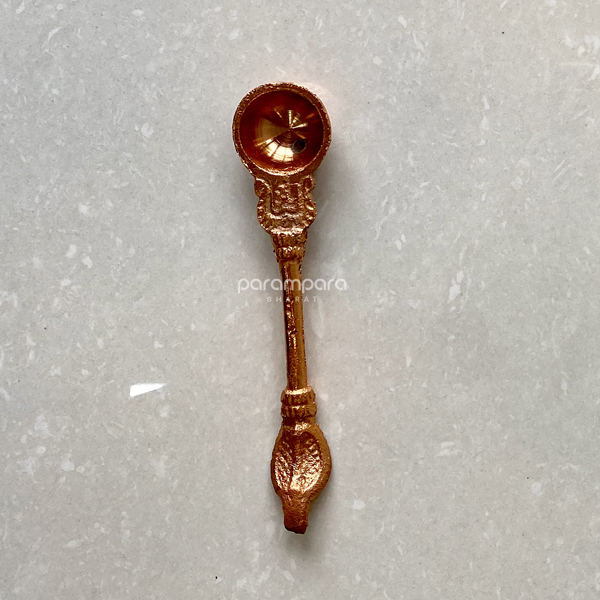
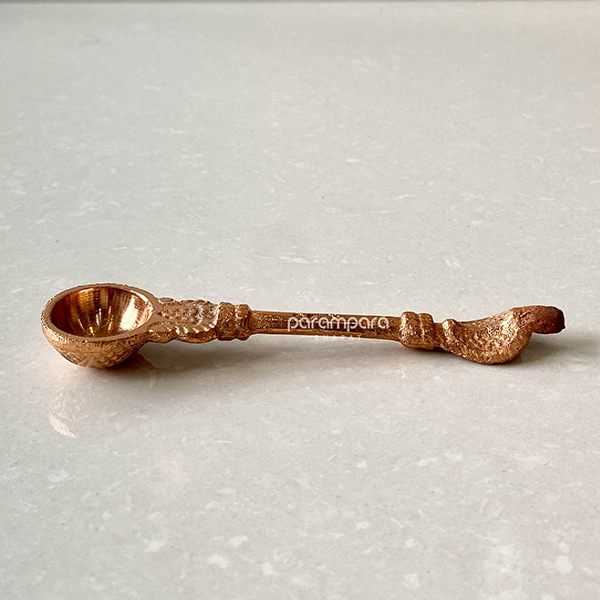
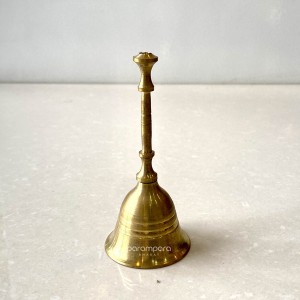

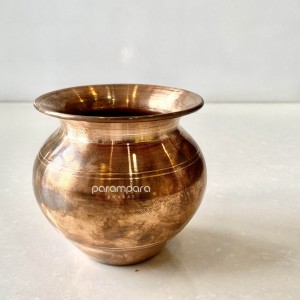
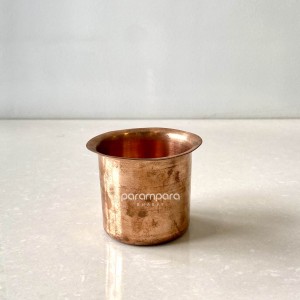

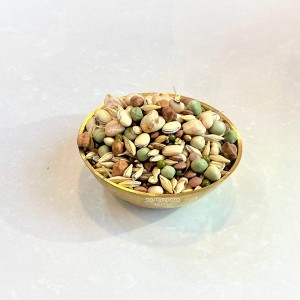
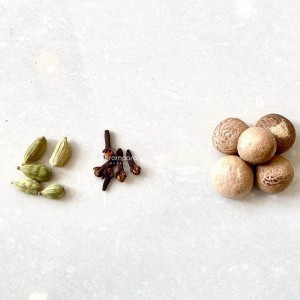
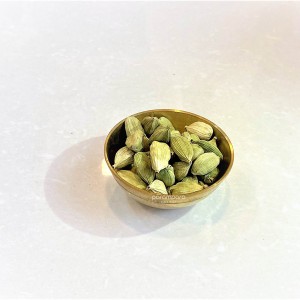


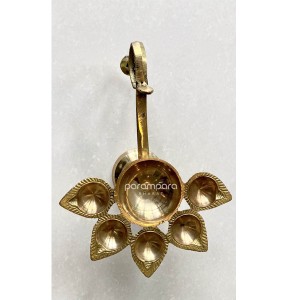



Reviews
There are no reviews yet.